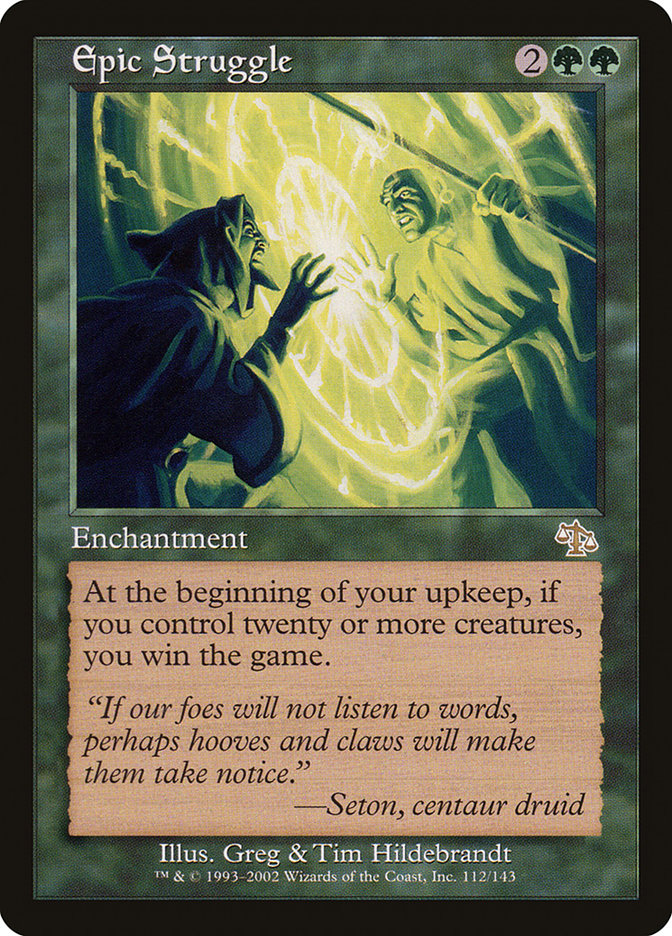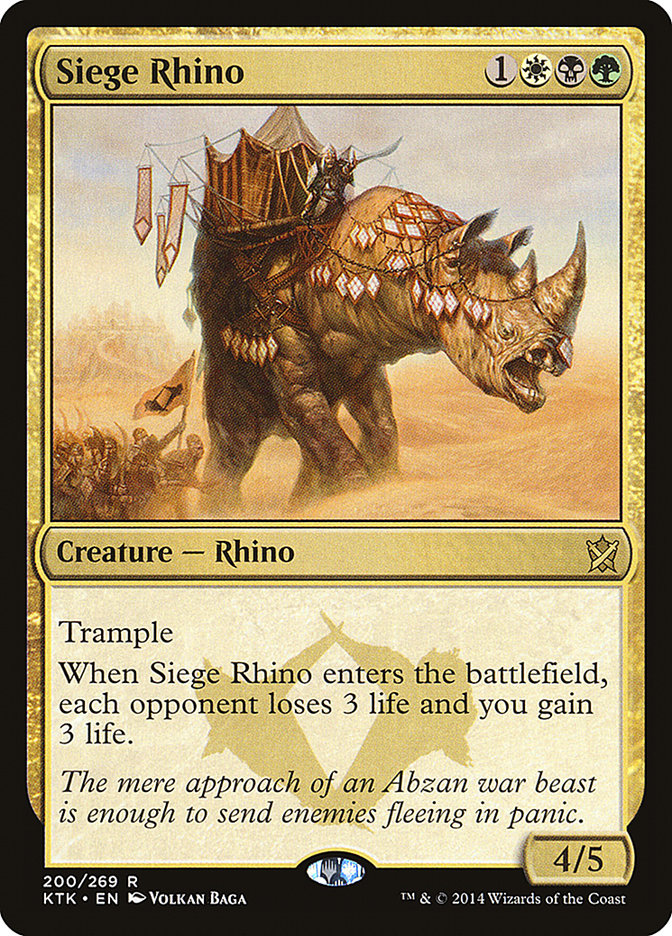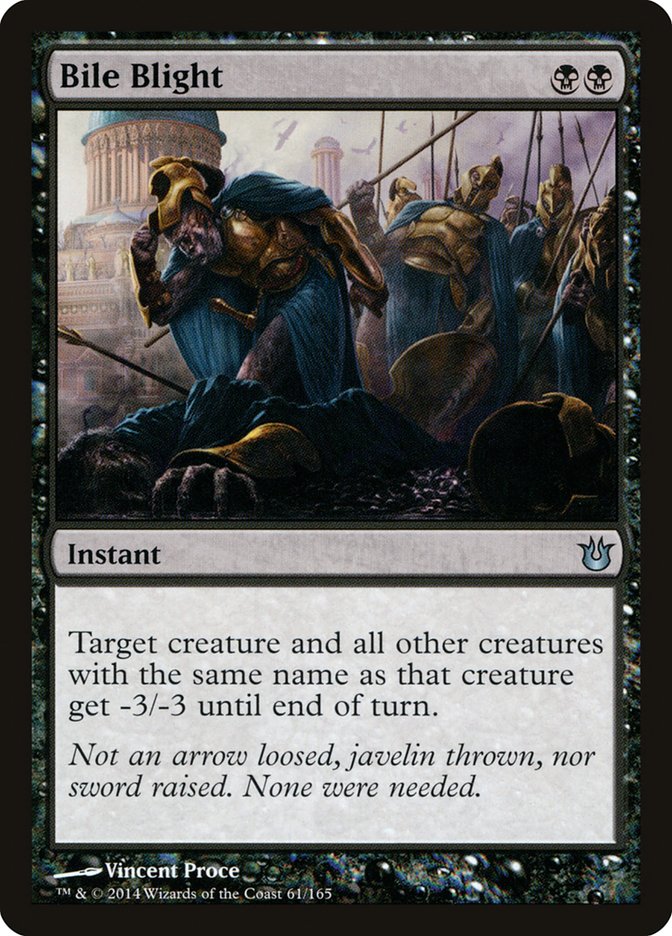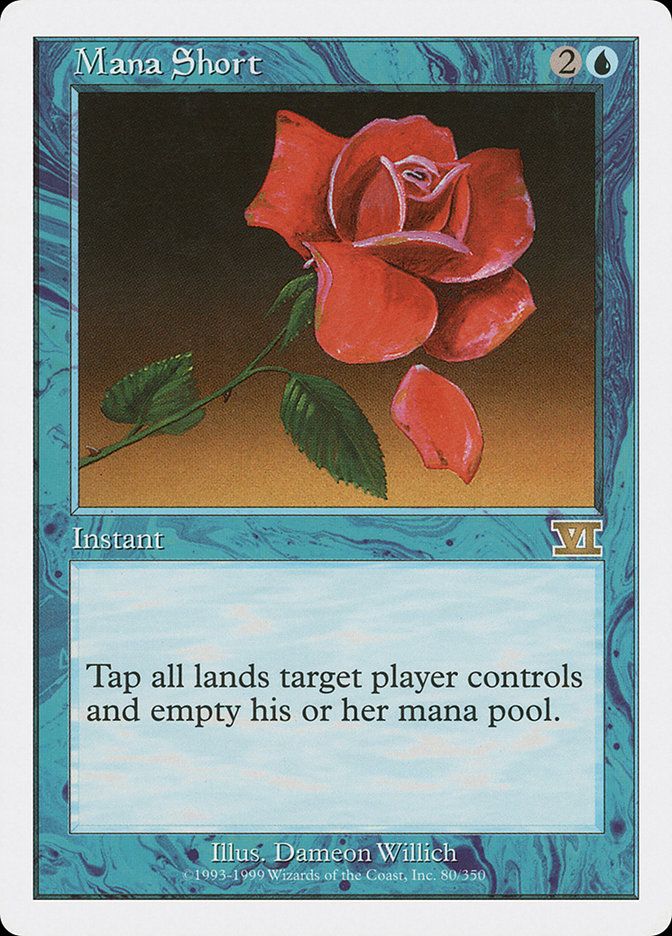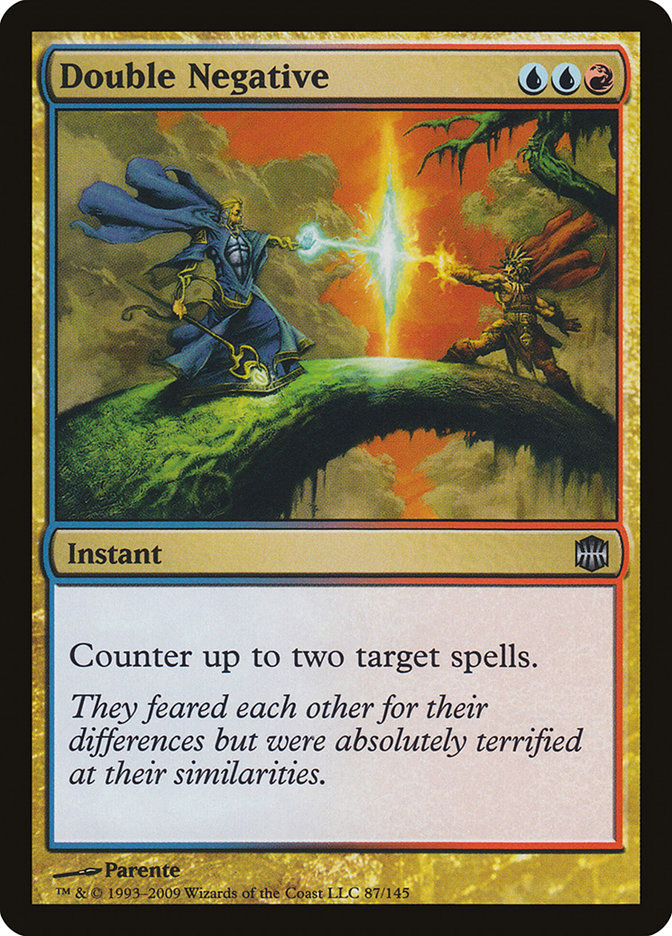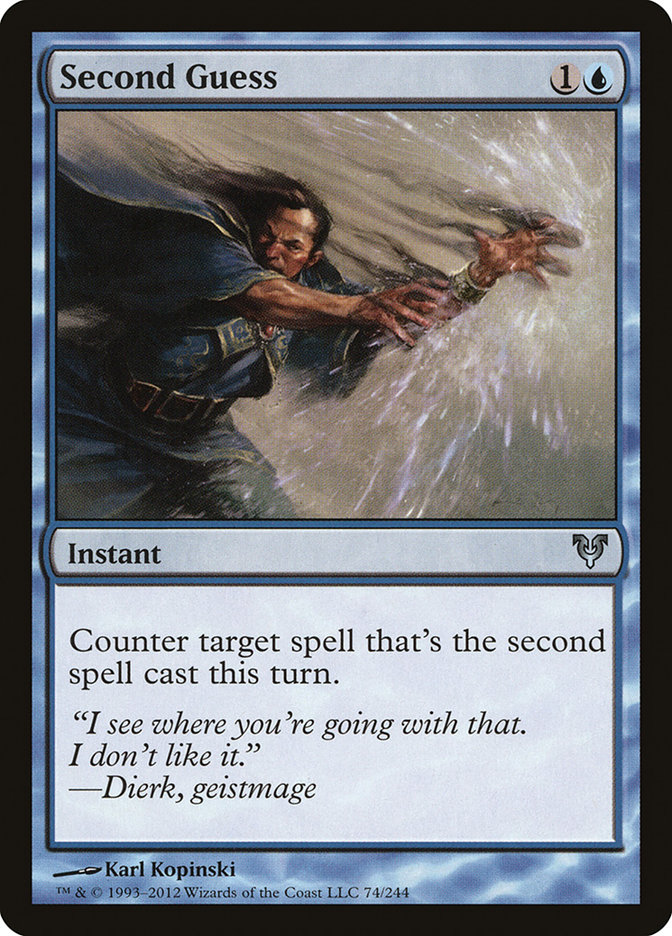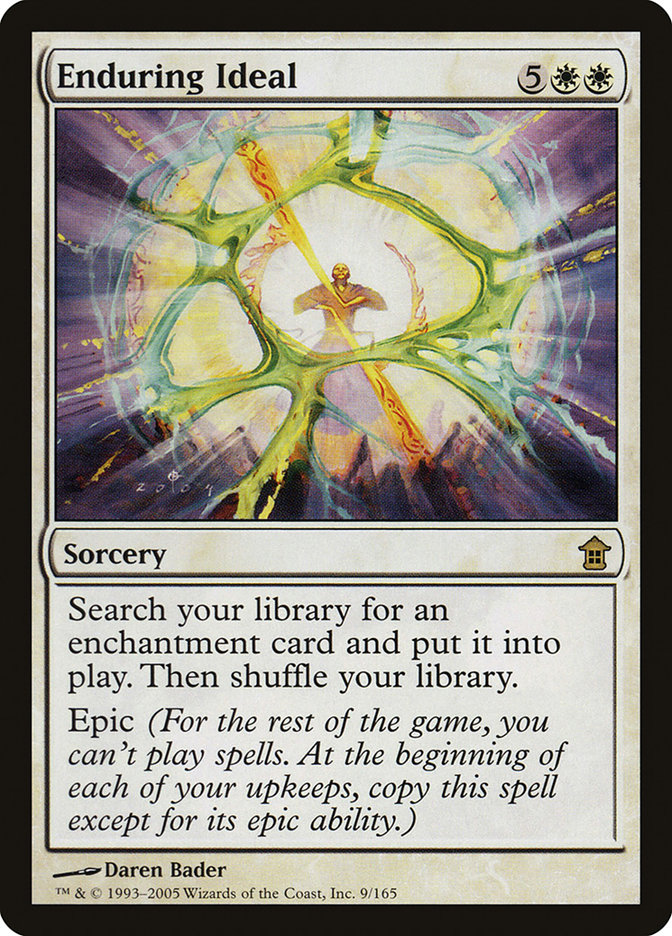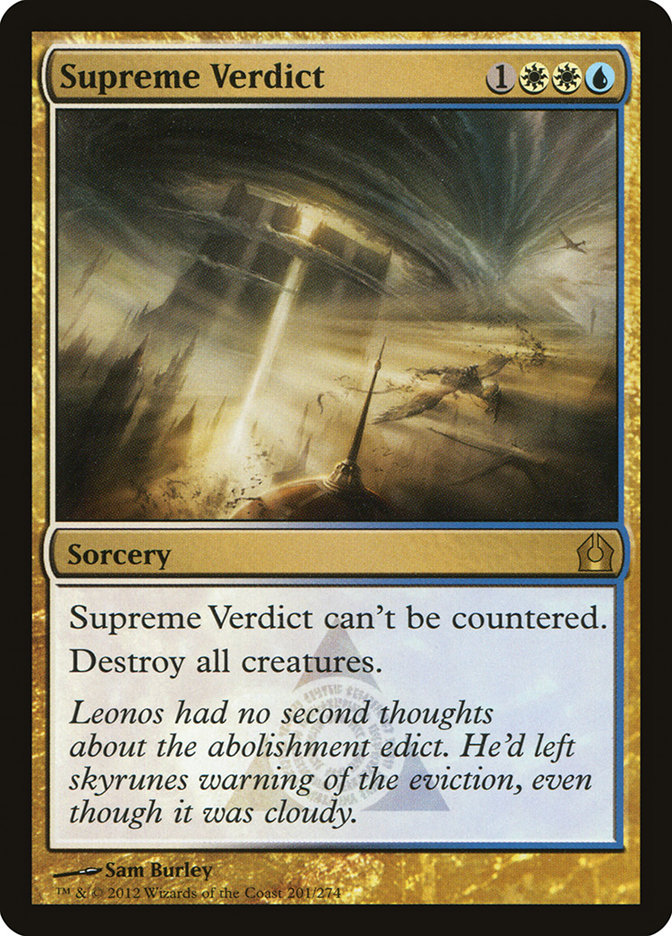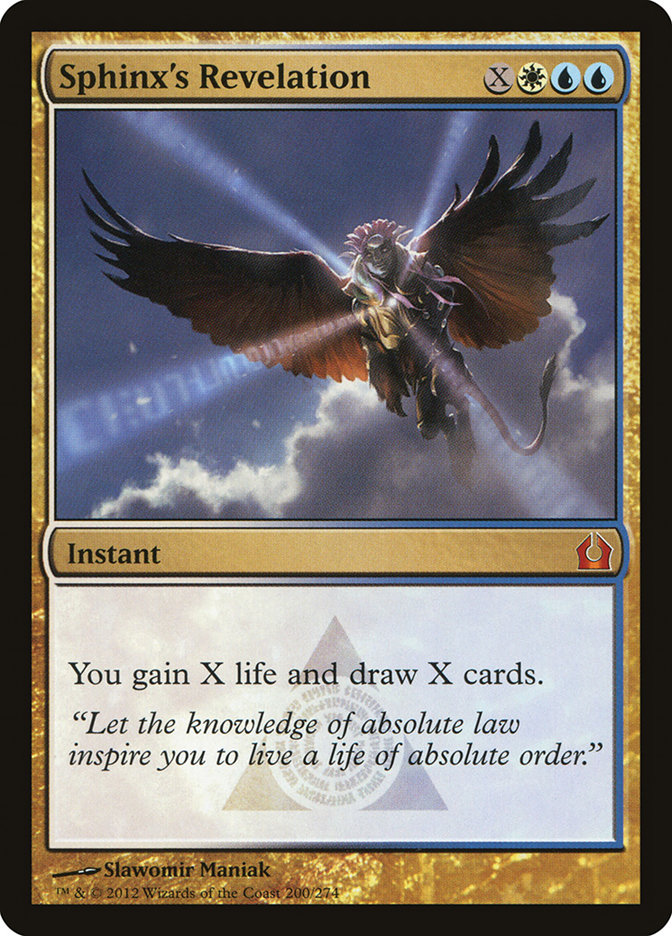So this weekend, while Mike Sigrist look-alike Brad Nelson took down the Knoxville Standard Open with B/G Delirium, I was busy testing my mettle at the Epic card game.
I was fortunate enough to learn this game this week and win a last-chance qualifier for the World Championships. Worlds was three formats I’d played one or less times each. I managed to rattle off a few wins and put myself in position to play two win-and-in matches for Top 8, but failed to do, so losing to two more prepared opponents. I’m still proud that I was at the level I was, having such little experience with the game, and had a real shot at making Top 8.
While playing this weekend, it was impossible to not notice the similarities in skillsets needed to play Epic that I have gained from Magic. Knowing Magic certainly gave me a huge edge in learning Epic quickly and proficiently but I also noticed all the skills that Epic reinforced for me as a Magic player. Epic basically forces you to play what I’d consider good Magic. I won’t be surprised if we see some great Epic players transition into Magic or Magic players playing a lot of Epic getting much better at Magic as they continue to practice Epic.
I came up with a list of lessons I learned from my Epic battles this weekend that transitioned over to Magic that I think are import to learn or reinforce. I by no means think this is a comprehensive list of all the skills necessary to be a good Magic player, but these are things I noticed while reflecting on the process of learning Epic that I think are important in Magic.
Finding Value
Traditionally in Magic we talk about value being cards that provide us additional cards or effects on top of what they are intended to do: removal spells that draw us extra cards, creatures with enters-the-battlefield effects, draw spells, and so on. What we don’t discuss often enough is finding value in cards that aren’t good in specific matchups.
One example would be from back in the early days of Abzan Midrange mirror matches when Siege Rhino reigned supreme. Bile Blight often had few targets for the opponent’s creatures, so utilizing it to save a Siege Rhino from an Abzan Charm or Elspeth, Sun’s Champion was a huge value and tempo play in these games because the matchup was all about grinding card-for-card. Bile Blight and late Thoughtseize were often the dead draws in the deck, so getting value out of them was advantageous to say the least. That sort of interaction was the best use we could normally get out of a Bile Blight, so executing that exchange was a huge swing in any individual game.
Occasionally in Epic, the same situations would come up where I would have a poor card for the opponent’s deck and using my pump spell for a few extra damage when I could was appropriate because it wasn’t going to get much better than that. These are the types of situations to look for when we play Magic as well. Figure out what the best use of any individual card is going to be in whatever matchup you’re playing and try to use that card for that purpose, if and when possible.
Mana Efficiency
Use it or lose it. It’s a pretty simple concept but definitely worth going over. In Epic you get one “mana” per turn (actually called gold). If you don’t use it, you lose it. The same is true in Magic. If we don’t tap our lands for mana in Magic, we have wasted that potential mana on nothing.
When we look at our hand, we need to figure out not only the best way to use the mana we have available to us on this turn but for additional turns throughout the game. Occasionally you will see players opting for their highest-impact spell to cast instead of utilizing mana as efficiently as possible.
An example in Modern would be having a choice between casting a Kitchen Finks or a Tarmogoyf with three mana available. The Tarmogoyf is currently at four power, therefore presenting the fastest clock, but we are using two mana instead of three. The issue with playing Tarmogoyf in this spot is that some of the time it prevents us from drawing and casting another two-mana spell the next turn when we have four available mana.
We have to weigh the option of how important one damage is against how likely we are to draw a spell we want to cast in addition to the Tarmogoyf the following turn. Playing the game in a mana-efficient manner is extremely important to developing your battlefield with not only what you have in your hand but maximizing your ability to play spells later in the game more efficiently.
Casting the Second Spell or Representing the Second Spell
This is a concept I someday would love to write a full article about because I think it is extremely important in improving as a Magic player, especially in Limited.
In Epic and Magic, the games can be decided in early combat steps. In Magic, aggressive strategies are often utilized in Limited and the decks focus on low-curve creatures, removal, and combat tricks. The aggressive player will often play the first creature and attack into a slightly bigger creature, representing a combat trick.
If we are on the defending side of this attack, we have to decide if we want to trade our creature for their combat trick. This depends on the context of our hand at the time of the attack. If we have larger creatures in our hand, it’s usually correct to just block, trade for the trick, let them play another smaller creature, and play out another bigger creature to hold down the fort.
Occasionally, however, we have a hand with a combat trick of our own or a removal spell and no other creatures. This is where it is key to set up the “second spell” scenario. We simply take the damage, let them play a creature, and pass the turn. The goal in this is to set up a combat step the next turn in which we have untapped mana and they play their trick right into our removal spell or combat trick. This usually leads to not only a two-for-one card exchange but a huge tempo boost.
Some opponents will recognize what’s going and not play into your open mana. This is equally exploitable if we can recognize this in a player, as we can simply leave up mana and represent a trick, giving us additional turns to stabilize against an opposing aggressive deck whether we actually have that second spell to cast or not.
I’ve been known to dislike aggressive strategies in Limited for quite some time, and this kind of exchange is exactly why. If the game progresses, I want to be the one with inevitability on my side, and setting up longer games is much easier than closing them out quickly in Limited.
Playing to Outs
In Magic and Epic and in any game really, I like to play to win. This often means playing to very few outs. In games where we are extremely far behind, we have to determine if there is any route to victory. Often it’s near-impossible and we need to draw two very specific cards in a row, as well as the opponent having nothing to disrupt our plan.
In these situations, even if the opponent has a hand full of cards, we have to simply pretend they have nothing and can’t disrupt our plan and take the course of action that gives us the highest-percentage chance of winning. It doesn’t look pretty, but if this even results in one match win over the course of your tournament playing days, it can be the difference between a major tournament win or just a solid finish.
Sometimes playing to your outs happens extremely early in a game; the faster you can recognize the direction of the game is going, the more likely you are to play the game in the manner that gives you the best chances at winning. It’s also important to stay flexible in these situations because the outs you’re searching for may be changing as the game develops. Develop a plan to win early and often, and remember to always adapt that plan as the game progresses.
Patience Is a Virtue
Flashing back to Blue Devotion, I remember having a very specific strategy against U/W Control, mostly in sideboarded games when the Blue devotion deck brought in more counterspells. Supreme Verdict was such a problem card that the way you had to win the matchup was never deploying more than a single creature at a time.
On the play I’d consider playing a one-drop into a two-drop, but I would never let more than one or two creatures enter the battlefield so as to minimize the damage from a Supreme Verdict. The plan was simply to attack for two damage for many turns and play a draw-go game with them while trading one creature with one removal spell. You wouldn’t spend your counterspells protecting creatures. Instead you’d fight counter wars over specific cards, mainly Jace, Architect of Thought; Sphinx’s Revelation; and, if they had it, Archangel of Thune.
By playing the game patiently in this matchup, you could win a slow grindy game of one-for-one Magic with chip shots. This situation occurs in long grindy games of Epic where you slowly deal damage while you both position for the long-game, and eventually enough of the damage adds up to give you a huge advantage, though it doesn’t seem like much at the time.
At times it may be tempting to just throw all your creatures on the table, cross your fingers, and hope they don’t have it to end the game quickly, but if you can slowly progress the game while making profitable exchanges throughout, it may just work out better for you. Don’t be afraid to play a long game if that’s what the recipe for success calls for.
Manage Your Life Total
This last lesson that I had to relearn playing Epic varies from matchup to matchup in Magic. Typically against control decks or slower midrange decks, you can use your life total as a resource, for example by taking some damage from an Ishkanah, Grafwidow while you hold a Ruinous Path for a potential Liliana, the Last Hope. In these situations, the only life points that usually matter are the last few. These games are more often won by specific problem cards (in this case Emrakul, the Promised End and Liliana, the Last Hope), so as long as we can keep the game in a manageable state, we can take some damage.
Against aggressive decks, we have to preserve our life total to lengthen the game and take over with our more powerful spells. This means some poor exchanges on our part, like casting our Ruinous Path on a Scrapheap Scrounger if they can’t return it immediately just to stop them from attacking the following turn, and keep them from developing their battlefield much more. Learning what situations we need to protect our life total in is important in playing high-level Magic.
I had a lot of fun learning and playing Epic this weekend, and I think the transition from Magic is smooth. You can learn the basics of the game in less than an hour. Magic is and will always be my number one, but if you need to take some time to play another game, I think Epic is the best for honing your Magic skills while also playing a completely different game.
We can learn to play better Magic outside of the game itself by exercising our understanding of games in general. If you play more card games than just Magic, try to recognize the skills that make the great players of those games as good as they are and see if these skills apply to Magic. You may just need to learn a concept from the outside to understand it best.


